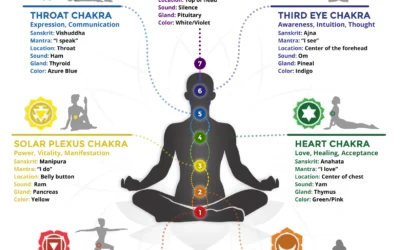Is Vipassana what I need to heal trauma?

Vipassana, which means “to see things as they really are,” is an ancient meditation technique that originated in India over 2,500 years ago. This powerful practice focuses on developing insight into the nature of reality and cultivating equanimity in the face of life’s challenges. This article explores the history, principles, and benefits of Vipassana meditation, as well as practical guidance for incorporating this transformative practice into daily life.
The Origins and Principles of Vipassana Meditation
- Buddhist Roots: Vipassana meditation is a central practice in Theravada Buddhism, said to have been rediscovered by the Buddha himself as a means to attain enlightenment and liberation from suffering.
- Insight and Wisdom: The primary goal of Vipassana is to gain insight into the true nature of reality, particularly the impermanence, unsatisfactoriness, and non-self characteristic of all phenomena.
- Mindfulness and Equanimity: Vipassana practice involves cultivating mindfulness, the ability to observe one’s thoughts, feelings, and sensations without judgment, and equanimity, the capacity to remain balanced and non-reactive in the face of both pleasant and unpleasant experiences.
The Practice of Vipassana Meditation
- Body Scan: Vipassana often begins with a body scan, in which the practitioner systematically observes physical sensations throughout the body, developing a heightened awareness of the ever-changing nature of bodily experience.
- Breath Awareness: The practice then typically shifts to observing the breath, using the natural sensation of breathing as an anchor for mindfulness and a means to cultivate concentration and clarity.
- Observing the Mind: As the practice deepens, the meditator begins to observe the arising and passing away of thoughts, emotions, and mental states, gaining insight into the impersonal and fleeting nature of these experiences.
- Equanimity and Wisdom: With continued practice, Vipassana meditators develop a profound sense of equanimity, the ability to remain balanced and non-reactive in the face of life’s ups and downs, as well as wisdom and compassion born from a deep understanding of the nature of reality.
Benefits of Vipassana Meditation
- Stress Reduction: Regular Vipassana practice has been shown to reduce stress, anxiety, and depression by promoting relaxation and emotional regulation.
- Enhanced Self-Awareness: By cultivating mindfulness and self-observation, Vipassana meditation can lead to greater self-awareness, self-acceptance, and personal growth.
- Increased Resilience: The practice of equanimity developed through Vipassana can help individuals navigate life’s challenges with greater ease, resilience, and adaptability.
- Spiritual Insight: For those seeking spiritual growth, Vipassana offers a path to profound insights into the nature of the self, reality, and the interconnectedness of all beings.
To begin a Vipassana practice, it is often recommended to attend a structured retreat or course led by a qualified teacher. These immersive experiences provide a supportive environment for learning the technique and establishing a strong foundation for ongoing practice.
For those unable to attend a retreat, many resources are available for learning Vipassana, including books, online courses, and guided meditations. It is essential to approach the practice with patience, consistency, and a willingness to observe and accept one’s experiences without judgment.
Ultimately, Vipassana meditation offers a powerful tool for self-discovery, personal transformation, and spiritual growth. By cultivating insight, equanimity, and compassion, this ancient technique can help individuals navigate the complexities of modern life with greater wisdom, resilience, and inner peace.
Mystics and Gurus























0 Comments